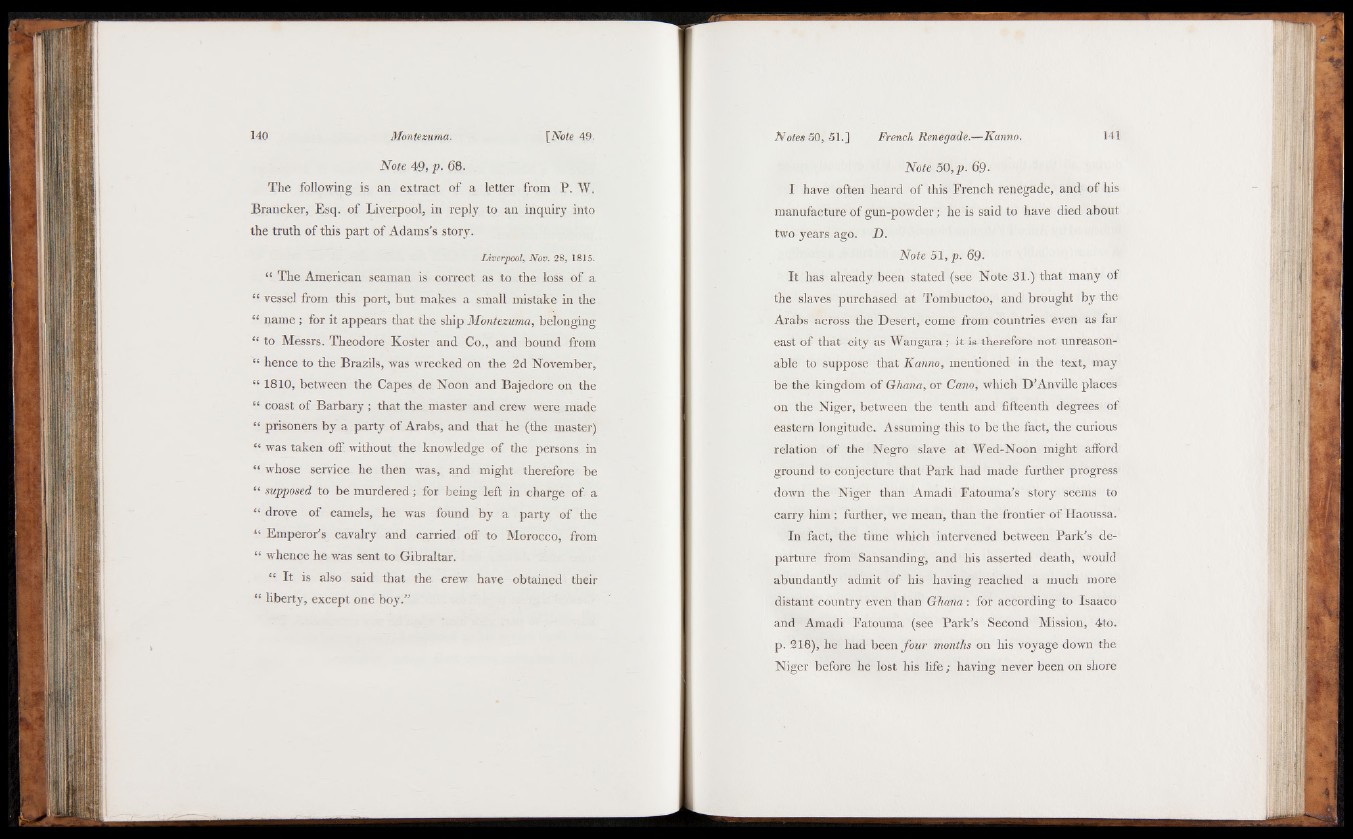
Note 49) P- 6'8.
The following is an extract of a letter from P. W.
Brancker, Esq. of Liverpool, in reply to an inquiry into
the truth of this part of Adams’s story.
Liverpool, Nov. 28, 1815.
“ The American seaman is correct as to the loss of a
“ vessel from this port, but makes a small mistake in the
“ name; for it appears that the ship Montezuma, belonging
“ to Messrs. Theodore Koster and Co., and bound from
i hence to the Brazils, was wrecked on the 2d November,
“ 1810, between the Capes de Noon and Bajedore on the
“ coast of Barbary; that the master and crew were made
“ prisoners by a party of Arabs, and that he (the master)
fj was taken off without the knowledge of the persons in
“ whose seryice he then was, and might therefore be
“ supposed to be murdered; for being left in charge of a
“ drove of camels, he was found by a party of the
“ Emperor’s cavalry and carried off to Morocco, from
“ whence he was sent to Gibraltar.
“ It is also said that the crew have obtained their
“ liberty, except one boy.’’
Note 50, p. 69-
I have often heard of this French renegade, and of his
manufacture of gun-powder; he is said to have died about
two years ago. D.
Note 51, p. 69-
It has already been stated (see Note 31.) that many of
the slaves purchased at Tombuctoo, and brought by the
Arabs across the Desert, come from countries even as far
east of that city as Wangara; it is therefore not unreasonable
to suppose that Kanno, mentioned in the text, may
be the kingdom of Ghana, or Cano, which D’Anville places
on the Niger, between the tenth and fifteenth degrees of
eastern longitude. Assuming this to be the fact, the curious
relation of the Negro slave at Wed-Noon might afford
ground to conjecture that Park had made further progress
down the Niger than Amadi Fatouma’s story seems to
carry him; further, we mean, than the frontier of Haoussa.
In fact, the time which intervened between Park’s departure
from Sansanding, and his asserted death, would
abundantly admit of his having reached a much more
distant country even than Ghana: for according to Isaaco
and Amadi Fatouma (see Park’s Second Mission, 4to.
p. 218), he had been four months on his voyage down the
Niger before he lost his life; having never been on shore